- Home
- Anne Spackman
The Book of Bird and Fairy Stories Page 4
The Book of Bird and Fairy Stories Read online
Page 4
“We’ll have two beds for tonight,” said John, turning then to Jim. “We’ll wait here for Gerald until 10 tomorrow morning, and go out looking for him again. If we can’t find him by 2 tomorrow, we’ll report him as missing, right?”
“Right,” said Jim. The hostess handed him a key to the room the two of them would share.
The two friends headed up the stairs to the second floor, past a statue of Venus, several old portrait paintings, and a picture of a manor house with swans in the pond.
“I wish we had listened to the waitress at that pub. It’s all my fault, and now Gerald is gone,” he said, guilt and remorse in his voice. He felt awful.
The next day, they searched and searched for Gerald, but never found him.
The Elf Knight had taken him away.
The Stork’s Nest
Far away in the country of Denmark, a young man named Hans lived in a small, three-story house in the city of Copenhagen. Hans was a tailor, who was very poor, and few people came to his shop. Soon he feared he would have to leave his house and find a small apartment in which to live.
In order to sell his house, one day Hans closed his shop and went upstairs to paint the attic. As he moved past an open window, he saw the storks fly from the neighboring roof top towards his own roof. Hans popped his head outside his window, and sure enough, there was a newly made stork’s nest on his roof.
The next day, Hans had a mysterious visitor chap on his door.
“Hi there,” said the stranger, coming into the little tailor’s shop. “I was told you are a tailor. I need a new suit, specially made. Can you have it ready this week?”
“I can,” said Hans. And he was very glad, for a specially made suit was a costly thing, and this meant that Hans would not have to move as soon as he had thought. Mr. Adler, for that was the man’s name, paid for his suit and left Hans to his work.
Hans spent all night sewing the special suit for the man, Mr. Adler. He spent the next couple of days sewing, and didn’t finish painting the upstairs’ room until the fourth day. On the fourth day, Hans returned to the upstairs room to finish painting. Then again, he saw a stork flying from the neighboring roof back to his own roof. A minute later, there was a chap at the door.
Hans hurried downstairs to get the door. When he opened it, he saw a tall, willowy lady with short brown hair standing on the step, her eyes beseeching his help.
“Sir, I was told this is the house where I may find a tailor. I need a wedding dress re-sized as soon as possible. Can you be of service to me?” She produced a garment in a long garment bag from under one arm. “It was my mother’s, but it is too long. I met a Mr. Adler as I was on the bus who said that you did an excellent job on his suit.”
“Well, thank you, I can certainly have a look at the dress and see what I can do,” said Hans, and he took the dress inside, beckoning the lady to follow him.
“Yes, I see your problem,” he said after a moment, “and there may be a way I can help you. I can shorten the dress easily, but it may take me a day or so to have the other sizing adjustments done and the dress ready for you.”
“Oh, thank you,” said the lady with a delighted smile. “I didn’t know who to trust this with, but Mr. Adler spoke of you so highly.”
The next day, the soon to be Mrs. John Levington returned for her dress, and was pleased with the fitting.
“Thank you, Sir, I shall always be in your debt,” said the lady.
Hans returned to painting his upstairs attic room. The next day, he saw the stork flying back to his roof, carrying a branch. Hans stopped to wonder if the storks were building a bigger nest upon his rooftop, when suddenly, there was a new chap at his door. Hans went down to on check who it was, thinking that perhaps he might not have to close his shop down entirely anymore, if business began to improve as it had done so recently.
“Sir, my name is Mrs. Holt. I must have my son’s trousers mended if he is to attend school properly. A Miss Gerhard that I met in the grocer’s told me you resized her wedding dress very well indeed.”
“What was your son doing?” asked Hans, taking the ripped garment and holding it up for inspection. There was a huge rip in the seat of the corduroy trousers.
“Climbing fences, I’m afraid,” said Mrs. Holt. “Could you see to the mending this afternoon?”
“I could, and I shall,” said Hans, and he was so quick with his work that Mrs. Holt stayed the hour until it was done. “There you are, all good as new,” said Hans, passing back the trousers. Mrs. Holt paid and left, leaving Hans shaking his head in wonder at his own good luck. He was not half an hour back in his attic when he saw the storks flying over again to his rooftop, this time with soft grass in their beaks.
There came immediately another chap at the door. Hans shook his head again in amazement, wondering at the coincidence between the storks’ arrival on his rooftop and his recent change in luck.
Hans went to the door, and a young lady waltzed in.
“I am Kristin Schmidt. I need a ball gown embellished in gold sequins for a wedding party. Can you do it? A Miss Gerhard and I are old friends, and she told me that you resized her wedding dress. This is a difficult and unusual request, but can you help me, too?”
Hans took a look at the simple satin dress she had brought with her and thought about it. She was asking him to embroider sequins on the dress, something he could do, but it would take a great deal of time.
“I could possibly do it, but it will take a week to finish, and cost too much,” said Hans.
“I am willing to pay handsomely,” said the Miss Schmidt. “This is for Miss Gerhard’s wedding and celebration.”
“Give me a moment to see what sequins I have in stock, and I’ll show what I have to you. If any meet with your approval, I can embellish your dress in one week.”
“I’ll be glad to wait for it, if it can be done,” said the Miss Schmidt.
Hans disappeared into his stock room, and returned with a tray of gold sequins for Miss Schmidt to choose the shade and size she wanted. After a while, she reached a decision upon what kind of sequins she wanted, and paid for the dress’ embellishment. Hans worked hard that week on the dress, and it was ready in time for the nearby wedding of Miss Gerhard. Hans was pleased with the results. As it turned out, Miss Gerhard even invited him to the wedding, which he attended. While at the reception, he was introduced as the new Mrs. Levington’s tailor, and many people remarked at what a fine job he had done upon the wedding dress. Then, Miss Schmidt admitted he had embellished her dress in gold sequins as well.
Following the Levington wedding, Hans had many requests for his services as a tailor, and he re-opened his shop. He decided to give it a new name when he opened up again, calling it “The Stork’s Nest” after the auspicious bird that had changed his destiny and brought him good luck.
The Fairy Ring
The fairy ring appeared one morning in the middle of a small English forest near Warwick. It was near a sacred grove of oak that the fairy ring first appeared by magic. All of the ordinary plants and animals within the fairy ring disappeared, leaving only a strange moss bed lined with small mushrooms and flowers, bluebells and lilies-of-the-valley. This was a strange thing indeed. A wild bird’s song filled the air a moment, the gentle whistle of a blue tit, followed by a few song sparrows breaking in noisily.
A local poacher whose name was Ewan was walking through the forest to a neighboring stream when he noticed the fairy ring. As he stepped into the open clearing lit by sunlight, he began to smell a faint, strange odor of flowery perfume and to hear an eerie song, as though the bluebells were ringing!!!
“Well, I’ll never be!” he exclaimed out loud, dropping his fishing pole. “The bluebells are ringing!” and as he looked down, he saw that indeed the bluebells were bouncing to and fro though there was no breeze to stir them.
The poacher was immediately afraid, and the hair on his back started to ris
e.
Suddenly a small voice said, “What big foot has stepped on my house?”
The poacher looked to his feet. There was a tiny figure, not an inch high flying around his foot. It looked like a dragonfly, but as the poacher squinted, he saw that it was a tiny human form with wings riding a dragonfly!
“I-I didn’t mean you any harm,” said the poacher. “I was just headed towards the river to do my usual bit of fishing,” he remarked, turning his head about as the tiny fairy circled his leg.
“Well, you did, you ruined my house!” shrieked the fairy. “You shall have to get me another one, or pay the consequences.”
“How can I do that?” asked the poacher.
“You must gather seeds of the bluebells by the stream and bring them back to me here in this clearing. Then plant the seeds for me, and I will soon have a new home. Be quick. If you do not return, I will find you this night and work my vengeance upon you!” warned the fairy, who was actually rather pretty, with long brown hair and green flashing eyes, and a nice little white dress. She looked every inch a lady, and also rather vexed at being put out of her tiny home. Her nostrils flared with venom, then she coughed and said, “if you do as I ask, I will let you go easily.”
He tried to leave without answering, but found himself suddenly back in the fairy ring the moment he stepped out of it. Again, he stepped out, and found himself right back where he started.
“Ok then, I’ll go and do what you ask,” agreed the poacher at last. “I’ll return in the hour.”
Unfortunately, however, he didn’t, though this time he was indeed able to leave the fairy ring. While fishing at the river, the poacher did gather the bluebell seeds from the many real bluebells growing on the river banks, but he forgot his deadline with the fairy, and fell asleep under an alder tree.
Soon after, he heard a shrill voice that woke him from his slumber.
“Mark my words, you will never fish again!” shrieked the fairy. “You forgot to bring me my seeds for a new home, and now you shall pay the price!”
The poacher blinked twice and woke up, but his fairy friend had disappeared already.
Immediately, his fishing rod snapped in half. He cursed and swore, then spent a long time in the forest looking for a long stick of wood to replace the fishing pole. No sooner than he had gotten it to the river bank when c-r-a-c-k! the branch broke in half in his fingers. The poacher dropped the now useless wood to the ground. He gathered the bluebell seeds, and returned to the fairy ring to bargain with the fairy for another chance.
“Please, kind miss,” said the poacher, “I have brought you the seeds for another home. Will you let me go fishing again? Here are the seeds,” he said, bending down to the ground and making a hole into it with his finger, then dropping the seed into it and covering it up with dirt he added, “there you are, good as new in no time. So how about letting me fish now?”
“You didn’t heed my warning,” said the fairy. “No deal.”
“But please, miss, I have no other way to live,” pleaded the poacher.
“Very well,” said the fairy, “but you must do me another favor first.”
“What favor?” asked the poacher.
“I am giving a fairy feast for my friends, and I require some butterflies for a dinner dish, dissolved in dew,” said the fairy. “Please go and gather some for me.”
“But how do I do that?” asked the poacher.
“That is your problem,” said the fairy. “But if you fail, you will never leave these woods again.”
The poacher gasped. “Very well,” he said. “I’ll do my best.” And with that he left, taking his cap off, intending to use it to catch the butterflies.
Many hours later he returned, with a few butterflies in his cap. He gave them over to the fairy by dropping his cap at her fairy feet and leaving it there.
“Butterflies are inside, as requested, Miss,” said the poacher.
“You have earned your reward,” said the fairy. “You may fish again, and you may leave this clearing, but if you ever return here again, you will never leave this place again alive.”
And with that, the poacher left the fairy ring, returned to his village with the story, and never set foot in the forest again.
The Knight and the Sparrow-hawk
Long ago, in the middle ages, lived a young squire named John Miller, who was in service to the noble knight Sir Gerald Worthington of York. Young John had aspirations one day of becoming a knight himself. Every day John saw to the Sir Gerald’s horse and other needs.
One afternoon at a jousting tournament, John was distracted from the tournament by the flight of a sparrow-hawk high above the field of contest. As he looked back down to the field, he saw Sir Gerald being impaled by the opposing knight, Sir Reginald. A wave of fear and grief struck the young lad, and he rushed forward to help his fallen master.
As it turned out, Sir Gerald did not die, but was gravely injured. For many long weeks, he lay in the care of the nuns at the nearby nunnery, who took great care of him. Young John stayed by Sir Gerald’s bedside much of the time, and even slept at the foot of his master. John helped in every way he could to assist the nuns caring for Sir Gerald.
One afternoon, Sir Gerald was able to stand again. He was in great pain still from the effort, but managed to get on his feet and walk to the window of the room to gaze out upon the green fields of the surrounding countryside. He turned to John a moment later, coughing a bit, and said,
“You have been a loyal servant, young John.”
John blushed and teared up a moment only, as he witnessed his master finally able to stand again. He hurried over to help him back to his bed, in case the exertion proved too much this early in Sir Gerald’s recovery.
It was nearly a week later before Sir Gerald was finally able to move from the small room at the nunnery back to his home in York. As the two men rode back to York, Sir Gerald was almost fully back to his old self, but he would be retiring for good to a quiet life soon after they returned to York. His wound, though not fatal, had punctured his chest and had not ever fully healed. He had only been lucky that he had not perished in the blow.
“I fear the worst, young John,” Sir Gerald said as the two rode intoYork.
“Sir, how are you managing?” said John in response. He was alarmed and fearful for his master’s sake.
“Indeed, I have not healed well enough, and I fear I shall not live long. I am entrusting you to a friend, Sir Gordon Ramsay of Nottingham, at the end of the month. I want you to continue your service to him and go on to become a knight one day.”
“But, sir, you would have me leave you? I cannot.”
“It is my greatest wish. I wish to reward you for your loyalty. I have already written Sir Ramsay and had his reply. It is done.”
“I shall never forget you, master,” said John, suppressing tears.
“Well, you shall assist me to my house, and the servants will look after me. As for you, a messenger will come to get you for your journey to Nottingham. You were a good squire to me, John Miller. As my life nears its end, I wish to reward those whom I know with a good heart, and a loyal nature. When I die, I shall leave half of my estate to the nuns who cared for me, and the other half to you, young John, for I have no heirs.”
And it came to pass that young John went to Nottingham in the service of the knight Sir Gordon Ramsay. In time, young John grew to manhood and was rewarded for his services with the order of the knighthood. He never forgot his former master, Sir Gerald, and was a kind and generous man to all who sought his charity and mercy. As the years passed, Sir Miller was awarded with honors on the battefield and won the hearts of the people of York, where he lived.
As he was riding one day in the forest to hunt for some food, he saw a sparrow-hawk wheeling above one afternoon. Distracted by the bird, he shot a lone arrow off into the forest. His horse reared, and he fell from his mount.
Getting to his
feet, a bit dirty and stiff-legged from the fall, Sir John recalled his master, Sir Gerald, and the tournament that had been his end. He climbed again onto his mount, and decided to head back into York, but as he rode, he thought more and more of his old master.
“I shall visit his grave,” he thought, and rode straight back to York. At his former master’s grave, Sir John then decided to return to the small nunnery where the nuns had tended Sir Gerald’s wounds, many miles to the South.
When Sir John arrived at the cathedral, he found few nuns around, and yet they offered to put him up for the night in one of the rooms.
“How fares sister Johnson?” asked Sir John as one of the nuns led him to a room.
“My former master Sir Gerald Worthington and I were assisted by her and the fine nuns of the nunnery after my master was injured in a tournament, some twenty-five years ago.”
“I am afraid that sister Johnson has died. We have a new Mother Kingsley from York, who is away at present, on business matters of the church. But she will return in a fortnight, and if you are still with us, you may meet her.”
“No, I could not presume so long on your hospitality. I came to inquire how the nuns fare these days, who took such good care of my former master.”
“Sir, the nunnery has fallen on dire times, I am afraid. Yet we survive.”
“I should very much like to help with a donation to the nunnery, if I might,” said Sir John. “A sum of five hundred pounds. In honor of the debt of my old master.”
“That would be a most generous gift,” said the nun in reply. “God Bless you, kind Sir.”
As Sir John slept, he dreamed of his youth, long ago. He awoke with a lightness of heart, and by the afternoon, had paid the sum of five hundred pounds to the nuns at the nunnery for their upkeep.
Sir John went on to become a worthy Baron of York, and in time, was praised for acts of generosity and kindness.
One day a few years later, while Sir John was out riding with his young son, a sparrow-hawk came and perched on the tree above them, in a glade in the woods near where they lived. John’s son Gregory looked towards the bird and pointed at it.
“What is that bird there, father?” asked the young lad, who was no more than nine years old.
“It is a sparrow-hawk from the looks of it,” replied Sir John. “Come, let us return home now. We will find no game to hunt here, I think.”
And with that the two of them went home, but the young lad stopped a moment longer to regard the bird as they rode away.
“Queer little bird, but I rather like him,” said young Gregory. “I wish I could bring him home with me.”
“He would not like that at all, son, for he is a wild bird, and one that is a swift hunter. But I tell you, I have seen his kind before, and will likely do so again.
However, that night, Sir John fell ill with a fever, and did not recover.
As he lay dying, he thought of his life,

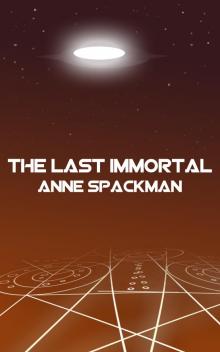 The Last Immortal : Book One of Seeds of a Fallen Empire
The Last Immortal : Book One of Seeds of a Fallen Empire Star Gods: Book Four of Seeds of a Fallen Empire
Star Gods: Book Four of Seeds of a Fallen Empire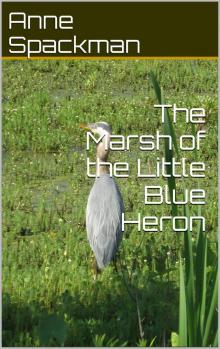 The Marsh of the Little Blue Heron
The Marsh of the Little Blue Heron Cormorant Bay
Cormorant Bay Across the Stars: Book Three of Seeds of a Fallen Empire
Across the Stars: Book Three of Seeds of a Fallen Empire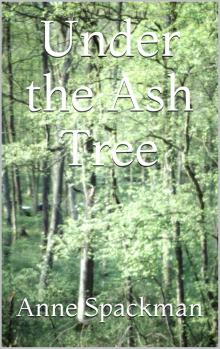 Under the Ash Tree
Under the Ash Tree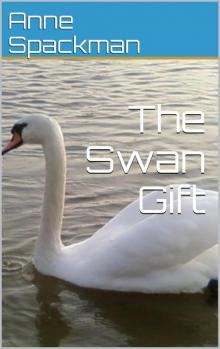 The Swan Gift
The Swan Gift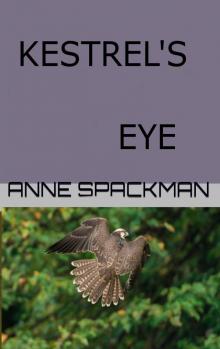 Kestrel's Eye
Kestrel's Eye Caesar and Cleopatra: A Tale of Julius Caesar
Caesar and Cleopatra: A Tale of Julius Caesar The Road to Skye
The Road to Skye Juniper Hill
Juniper Hill The Empire: Book Six of Seeds of a Fallen Empire
The Empire: Book Six of Seeds of a Fallen Empire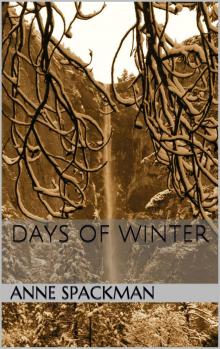 Days of Winter
Days of Winter The Osiris Invasion: Book Two of Seeds of a Fallen Empire
The Osiris Invasion: Book Two of Seeds of a Fallen Empire The Comet Riders: Book Five of Seeds of a Fallen Empire
The Comet Riders: Book Five of Seeds of a Fallen Empire Ocean Spirit : The Story of an Undine
Ocean Spirit : The Story of an Undine What Emma Left Behind
What Emma Left Behind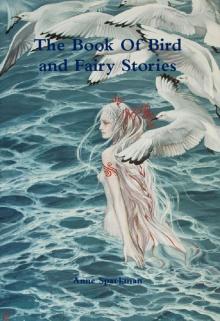 The Book of Bird and Fairy Stories
The Book of Bird and Fairy Stories Blackberry Wine
Blackberry Wine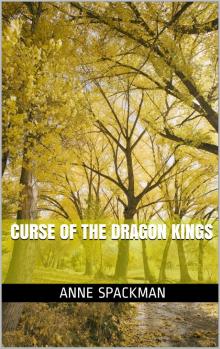 Curse of the Dragon Kings
Curse of the Dragon Kings